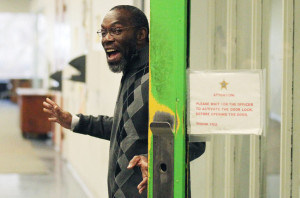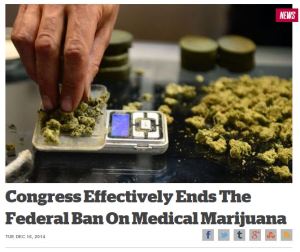Why Conservatives and Libertarians Should Oppose the Death Penalty

Are you pro-life? Opposed to big government? Do you believe in reducing government spending? Do you support the death penalty? If you answered yes to all of these questions, then you may want to re-think your position on the death penalty. As supporters of life, liberty, property, and limited government, I believe that all conservatives and libertarians should oppose the death penalty.
I used to be a staunch supporter of the death penalty. I firmly believed that one should repay an “eye for an eye” or a “life for a life.” I can remember exactly where I was when I reformed these beliefs. It was on January 23, 2006 and I was participating in the March for Life in Washington DC. As I was walking down Pennsylvania Ave, I noticed a sign that read: “Pro-Life No Exceptions.” I thought back to the many debates with my girlfriend at the time, when she would ask me how I could be pro-life but still support the death penalty. Being pro-life, I had to ask myself, “how could I say that I support life, but support the state-sanctioned taking of life?”
Cost of the Death Penalty
Furthermore, as someone who believes in limited government, I also had to ask myself another important question. “If I don’t trust the government to make decisions about my wallet, how can I trust the government to make decisions about killing people?” Crazy, right? Oftentimes, we conservatives and libertarians rail against government spending, and rightfully so. So why do we still overwhelmingly support a policy that costs taxpayers about four times more than cases where the death penalty is not involved?
This figure only takes into account the cost of trial. We also have to take into account the costs for appeals and to house prisoners. According to Forbes:
And let’s not forget about appeals: in Idaho, the State Appellate Public Defenders office spent about 44 times more time on a typical death penalty appeal than on a life sentence appeal (downloads as a pdf): almost 8,000 hours per capital defendant compared to about 180 hours per non-death penalty defendant. New York state projected that the death penalty costs the state $1.8 million per case just through trial and initial appeal.
It costs more to house death penalty prisoners, as well. In Kansas, housing prisoners on death row costs more than twice as much per year ($49,380) as for prisoners in the general population ($24,690). In California, incarceration costs for death penalty prisoners totaled more than $1 billion from 1978 to 2011 (total costs outside of incarceration were another $3 billion). By the numbers, the annual cost of the death penalty in the state of California is $137 million compared to the cost of lifetime incarceration of $11.5 million.
The Death Penalty and Crime Deterrence
I often hear the argument that the death penalty is the best method of reducing the murder rate. After all, if one is facing the threat of death, one would be less likely to commit murder, right? Well, according to the Death Penalty Information Center, states which impose the death penalty had an average of 4.4 murders per 100,000 people as opposed to only 3.4 murders per 100,000 people in non-death penalty states.
Furthermore, let’s look at the murder rate based on region. According to the Death Penalty Information Center, the South consistently has the highest murder rate per capita, yet they have, by far, the most executions (as the chart shows below) since the death penalty was reinstated by the Supreme Court in Gregg v. Georgia in 1976.
MURDER RATES PER 100,000 PEOPLE
| REGION | 2013 | 2012 | 2011 | 2010 | 2009 | 2008 | 2007 | 2006 | 2005 | 2004 | 2003 | 2002 | 2001 | EXECUTIONS SINCE 1976(As of 11/19/14) |
| South | 5.3 | 5.5 | 5.5 | 5.6 | 6.1 | 6.6 | 7.0 | 6.8 | 6.6 | 6.6 | 6.9 | 6.8 | 6.7 | 1133 |
| Midwest | 4.5 | 4.7 | 4.5 | 4.4 | 4.6 | 4.8 | 4.9 | 5.0 | 4.9 | 4.7 | 4.9 | 5.1 | 5.3 | 170 |
| West | 4.0 | 4.2 | 4.2 | 4.2 | 4.6 | 5.0 | 5.3 | 5.6 | 5.8 | 5.7 | 5.7 | 5.7 | 5.5 | 85 |
| Northeast | 3.5 | 3.8 | 3.9 | 4.2 | 3.8 | 4.2 | 4.1 | 4.5 | 4.4 | 4.2 | 4.2 | 4.1 | 4.2 | 4 |
| NATIONAL RATE | 4.5 | 4.7 | 4.7 | 4.8 | 5.0 | 5.4 | 5.6 | 5.7 | 5.6 | 5.5 | 5.7 | 5.6 | 5.6 | |
If the death penalty is a deterrent for crime, shouldn’t the states with the most executions have the lowest murder rate per capita?
The Death Penalty and The Innocent
According to the Innocence Project, at least ten people have been executed in cases where there is evidence that may exonerate them. Since 1973, 150 people on death row have been exonerated through new evidence and been pardoned, acquitted by a new trial, or had their charges dismissed. In 2014 alone, seven death-row inmates were exonerated including Ricky Jackson and Wiley Bridgeman, who were convicted of murder in 1975. These men spent 39 years on death row, their entire adult lives. Yet if supporters of the death penalty had their way, these men would have been executed 38 years ago.
I prefer to adhere to the saying by conservative jurist Sir 






